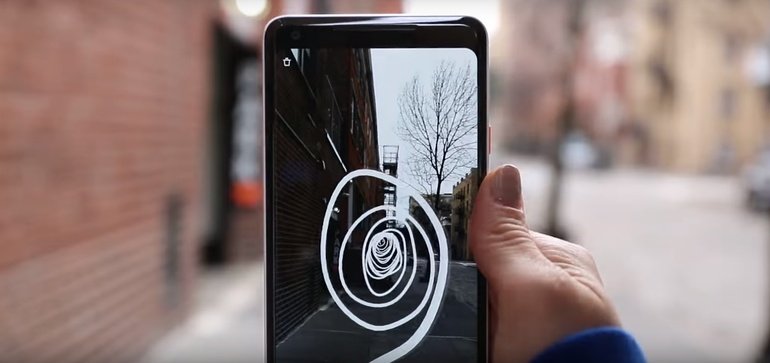Credit: Google / YouTube
AUTHOR | Robert Williams
Source: www.retaildive.com, November 2019
Brief:
- Augmented reality (AR) is the most likely technology to make consumers think a brand is innovative, although most cutting-edge tech fall flat, per a YouGov-commissioned survey Diffusion shared with sister publication Mobile Marketer. About one-fourth (26%) of consumers said AR led them to think a brand was technically savvy, ahead of artificial intelligence (19%), facial recognition (18%), chatbots (6%) and cryptocurrency (4%).
- Almost half (44%) of consumers want to see these technologies improve shopping experiences, such as AR that helps to visualize products in real-life settings. One-third (33%) want technology to help with customer service, such as using AI to customize shopping recommendations, and 30% want more convenient shipping, such as drone delivery and warehouse organization.
- Cutting-edge technology improves brand perceptions among a minority of consumers. Only 29% of consumers are more likely to read news articles about an innovative brand, while 25% are more likely to recommend an innovative brand to friends and family. The survey also found that 23% are more likely to think an innovative brand is relevant, while 16% are more likely to spend money with a brand they perceive as innovative, per Diffusion.
Insight:
Cutting-edge technology may boost perceptions of brand innovation and help to boost sales, but only among a small group of consumers, Diffusion’s study indicates. When prioritizing which technologies deserve investment, brands may see the greatest effect from AR, which overlays digital images on a real background seen through a smartphone camera or headset.
AR technology is still in a formative stage, although it has significant support from tech giants like Apple, Google and Microsoft that have created software development kits (SDKs) to help designers create AR-compatible tools. Adobe and Unity are among the software companies that have created AR authoring tools that don’t require coding know-how to develop more immersive AR experiences, while Snapchat and Facebook have introduced similar software to create AR content in their respective apps.
Diffusion’s survey indicates that chatbots still need to evolve to improve consumer perceptions about brand innovation. Natural-language processing and AI that underpin chatbots also are key areas of research and development. They support voice-powered platforms like Amazon’s Alexa, Apple’s Siri, Google Assistant and Microsoft’s Cortana, along with more specialized applications like Bank of America’s Erica and Mercedes-Benz’s MBUX. Chatbot adoption is forecast to skyrocket as companies seek to cut customer-service costs by automating many functions now handled by humans, per a report by customer relationship management provider Salesforce.com.

